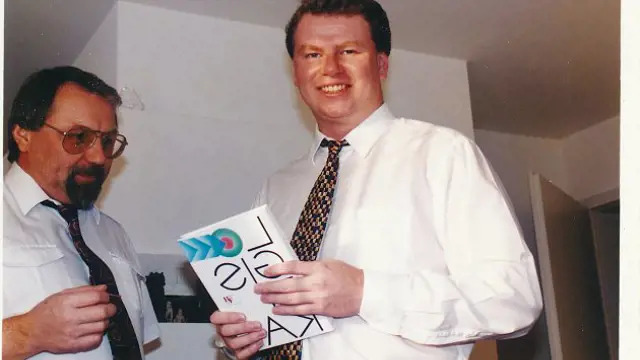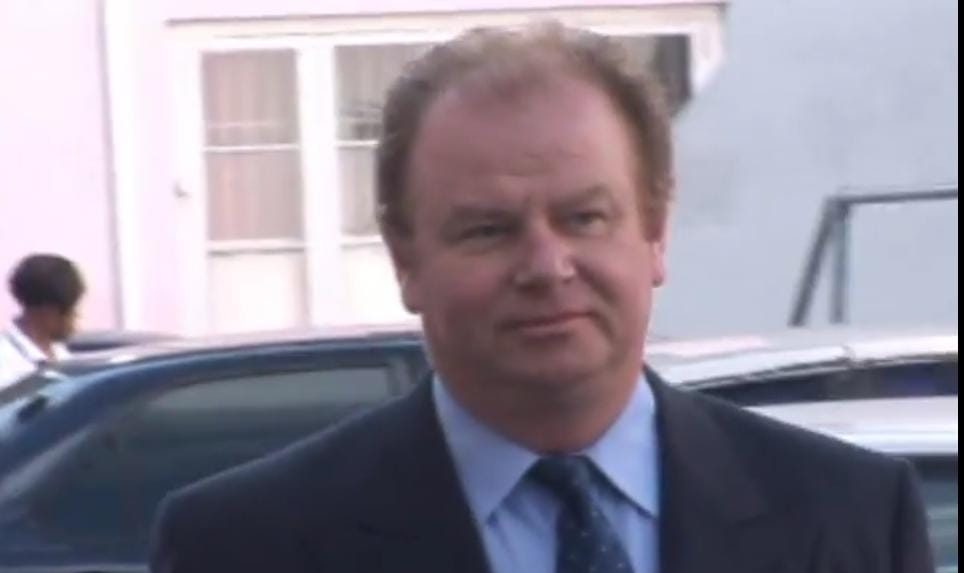Navigating the complex world of financial crimes proves to be a challenging endeavor, often requiring meticulous investigations and strategies to apprehend the culprits. Apple TV’s ‘Pirate of Prague’ podcast delves into the intricate realm of financial criminals, shedding light on one such notorious figure, Viktor Kožený. Infamously known as the ‘Pirate of Prague,’ Kožený orchestrated one of the most significant scams in the aftermath of the fall of communism, during the new world order. The podcast explores the details of his elaborate schemes and the ensuing chaos, offering a closer look at the man behind the moniker. Let us see what we know about him!
How Much Money Did Viktor Kožený Scam?
Viktor Kožený, an Irish citizen born in Prague in 1963, presents himself as an “independent venture capital and private equity professional” on his LinkedIn profile. Rising to prominence in the 1990s as a fresh Harvard graduate during the ‘Prague Spring,’ a term often associated with the period of political liberalization in Czechoslovakia, Kožený made a significant impact. Following his Harvard education, he collaborated with Robert Fleming on privatization projects before returning to Czechoslovakia to contribute to the nation’s economic reconstruction. In October 1990, Kožený officially established Harvard Capital and Consulting, and in February 1991, he founded Corporate Security Products as part of his entrepreneurial endeavors.

Starting in 1992, voucher privatization was introduced in the Czech Republic as a transition from state ownership to private ownership. Under this scheme, citizens were given vouchers that could be used to purchase shares in formerly state-owned enterprises. Viktor Kožený’s Harvard Capital and Consulting gained significant popularity during this time, attracting attention not only domestically but also internationally, especially from prominent U.S. investors. Kožený made bold promises, committing to a staggering 1000% return on investment. However, instead of fulfilling these promises, he engaged in deceptive practices. Kožený acquired shares in companies, engaged in asset-stripping, and allegedly embezzled millions of dollars from unsuspecting investors by transferring the funds to offshore accounts.
In 1994, Viktor Kožený replicated his deceptive practices in Azerbaijan when the government contemplated privatizing its state-run oil company, SOCAR. Presenting his services, Kožený amassed a staggering $400 million from U.S. investors, including prominent names like AIG and Columbia University. Despite the Azerbaijani government deciding against privatization, Kožený failed to return the funds and instead fled to the Bahamas. In a revealing interview in 2001, Kožený claimed that the Azerbaijani president and his son had encouraged the purchase of vouchers, but the Azerbaijan President’s Office denied any such interaction had taken place.
In 2005, Viktor Kožený found himself living in a closed community in the Bahamas when the U.S. issued an extradition request related to the Czech scam. However, the Bahamas rejected the extradition plea in 2007 after scrutinizing his case. Subsequently, both the Czech Republic and the U.S. have been actively seeking to prosecute him. The legal proceedings took a step forward in 2008 when a court case against Kožený and his business partner Boris Vostrý commenced at the Prague Municipal Court. However, Kožený has never made an appearance for the trial, evading the judicial process.
In 2010, Viktor Kožený’s legal troubles deepened as the trial for the Azerbaijan scam commenced. The case was initiated following an indictment filed by the renowned Manhattan District Attorney Robert Morgenthau in New York, accusing Kožený of bribery involving Azeri officials. However, in 2012, the Bahamian authorities rejected the extradition request from U.S. authorities after the Privy Council ruled that the offense was not extraditable. In the same year, a Czech court found Kožený guilty of fraud, sentencing him to 10 years in prison and ordering him to pay damages amounting to hundreds of millions in USD. This judgment was subsequently reaffirmed by the High Court in Prague in 2012. He is facing charges for embezzling hundreds of millions of dollars.
Where is Viktor Kožený Now?

A victim of the fraud perpetrated by Viktor Kožený filed an enforcement action in New York based on a judgment obtained in the Czech Republic. To make it clear, an enforcement action refers to legal proceedings taken by a victim of fraud to enforce a judgment or seek redress against the perpetrator. The action specifically aims to target assets that were frozen by U.S. authorities as part of the legal consequences imposed on Kožený. In the legal proceedings, the accused entity is a company owned for profits by Kožený’s mother, Jitka Chvatik. Initially, the court imposed a freeze on the company’s assets, indicating a temporary restriction or prohibition on their utilization or transfer. Subsequently, the company contested this decision, leading to an appeal but in 2014, the court, dismissed the appeal and opted to reinstate the freeze on the assets. This case remains unresolved, with no conclusive outcome thus far.
Viktor Kožený, now around 42 years old, resides in the gated community at Lyford Cay, near Nassau, effectively confined to the Bahamas. He is a fugitive and remains internationally wanted by the Czech and U.S. criminal justice systems. In an old interview from the 2000s, Kožený expressed a desire to teach business in the future. He acknowledged a significant downsizing of his assets, having parted with his yacht, private jet, and oceanside house, while retaining his Mercedes. Kožený has managed to keep a low profile, and there is no recent information on his whereabouts or activities, leaving his current status shrouded in mystery.
Read More: Coco Berthmann: Where is the Alleged Fraudster Now?


You must be logged in to post a comment.